afterLoad (456.22KB) (2.8ms)
afterInitialise (1.27MB) (25.56ms)
afterRoute (840.56KB) (14.23ms)
beforeRenderComponent com_tags (21.36KB) (2.36ms)
afterRenderComponent com_tags (1.93MB) (104ms)
afterDispatch (57.2KB) (4.32ms)
beforeRenderRawModule mod_articles_category (READ MORE...) (439.86KB) (17.81ms)
Before Access::preloadComponents (all components) (114.9KB) (2.5ms)
After Access::preloadComponents (all components) (103.05KB) (6.95ms)
Before Access::getAssetRules (id:8 name:com_content) (840B) (16μs)
After Access::getAssetRules (id:8 name:com_content) (7.05KB) (48μs)
afterRenderRawModule mod_articles_category (READ MORE...) (6.37KB) (131ms)
beforeRenderRawModule mod_custom (BOOST YOUR IMMUNE DEFENSE) (6.45KB) (21μs)
afterRenderRawModule mod_custom (BOOST YOUR IMMUNE DEFENSE) (3.8KB) (174μs)
beforeRenderRawModule mod_tags_popular (Search) (2.36KB) (12μs)
afterRenderRawModule mod_tags_popular (Search) (42.13KB) (175ms)
beforeRenderRawModule mod_custom (Get additionel and more detailed knowledge ) (816B) (26μs)
afterRenderRawModule mod_custom (Get additionel and more detailed knowledge ) (1.55KB) (45μs)
beforeRenderRawModule mod_custom (Overview of vitamins, minerals, and essential fatty acids) (768B) (10μs)
afterRenderRawModule mod_custom (Overview of vitamins, minerals, and essential fatty acids) (960B) (22μs)
beforeRenderRawModule mod_custom (Q10 goes by many names) (608B) (8μs)
afterRenderRawModule mod_custom (Q10 goes by many names) (928B) (18μs)
beforeRenderRawModule mod_custom (Check this before you buy a Q10 product) (752B) (8μs)
afterRenderRawModule mod_custom (Check this before you buy a Q10 product) (944B) (17μs)
beforeRenderRawModule mod_custom (Are you taking supplements) (736B) (7μs)
afterRenderRawModule mod_custom (Are you taking supplements) (1.03KB) (16μs)
beforeRenderRawModule mod_custom (Weight loss that works) (736B) (8μs)
afterRenderRawModule mod_custom (Weight loss that works) (1.03KB) (16μs)
beforeRenderRawModule mod_custom (Antiaging) (720B) (9μs)
afterRenderRawModule mod_custom (Antiaging) (912B) (15μs)
beforeRenderRawModule mod_menu (Are you getting enough vitamins and minerals?) (2.5KB) (11μs)
afterRenderRawModule mod_menu (Are you getting enough vitamins and minerals?) (22.39KB) (491μs)
beforeRenderRawModule mod_menu (The key to increased well-being) (736B) (16μs)
afterRenderRawModule mod_menu (The key to increased well-being) (17.83KB) (2.29ms)
beforeRenderRawModule mod_menu (Did you know.....) (720B) (25μs)
afterRenderRawModule mod_menu (Did you know.....) (25.52KB) (335μs)
beforeRenderRawModule mod_custom (Useful Links) (1.06KB) (14μs)
afterRenderRawModule mod_custom (Useful Links) (1.02KB) (29μs)
beforeRenderRawModule mod_custom (Chronic fatigue tied Alan to his bed but Q10 capsules saved him:) (244.28KB) (9.05ms)
afterRenderRawModule mod_custom (Chronic fatigue tied Alan to his bed but Q10 capsules saved him:) (1.06KB) (39μs)
beforeRenderModule mod_custom (Chronic fatigue tied Alan to his bed but Q10 capsules saved him:) (768B) (4μs)
afterRenderModule mod_custom (Chronic fatigue tied Alan to his bed but Q10 capsules saved him:) (1.3KB) (47μs)
beforeRenderRawModule mod_custom (Cholesterol-lowering without side effects:) (368B) (11μs)
afterRenderRawModule mod_custom (Cholesterol-lowering without side effects:) (1.06KB) (19μs)
beforeRenderModule mod_custom (Cholesterol-lowering without side effects:) (752B) (2μs)
afterRenderModule mod_custom (Cholesterol-lowering without side effects:) (1.28KB) (27μs)
beforeRenderModule mod_articles_category (READ MORE...) (20.82KB) (2.41ms)
afterRenderModule mod_articles_category (READ MORE...) (1.25KB) (47μs)
beforeRenderModule mod_custom (BOOST YOUR IMMUNE DEFENSE) (6.81KB) (13μs)
afterRenderModule mod_custom (BOOST YOUR IMMUNE DEFENSE) (1.28KB) (25μs)
beforeRenderModule mod_tags_popular (Search) (1.98KB) (11μs)
afterRenderModule mod_tags_popular (Search) (1.27KB) (22μs)
beforeRenderModule mod_custom (Get additionel and more detailed knowledge ) (1.17KB) (9μs)
afterRenderModule mod_custom (Get additionel and more detailed knowledge ) (1.3KB) (20μs)
beforeRenderModule mod_custom (Overview of vitamins, minerals, and essential fatty acids) (384B) (8μs)
afterRenderModule mod_custom (Overview of vitamins, minerals, and essential fatty acids) (1.31KB) (19μs)
beforeRenderModule mod_custom (Q10 goes by many names) (208B) (8μs)
afterRenderModule mod_custom (Q10 goes by many names) (1.27KB) (19μs)
beforeRenderModule mod_custom (Check this before you buy a Q10 product) (352B) (7μs)
afterRenderModule mod_custom (Check this before you buy a Q10 product) (1.28KB) (18μs)
beforeRenderModule mod_custom (Are you taking supplements) (352B) (8μs)
afterRenderModule mod_custom (Are you taking supplements) (1.28KB) (19μs)
beforeRenderModule mod_custom (Weight loss that works) (336B) (7μs)
afterRenderModule mod_custom (Weight loss that works) (1.27KB) (19μs)
beforeRenderModule mod_custom (Antiaging) (336B) (7μs)
afterRenderModule mod_custom (Antiaging) (3.77KB) (19μs)
beforeRenderModule mod_menu (Are you getting enough vitamins and minerals?) (2.13KB) (10μs)
afterRenderModule mod_menu (Are you getting enough vitamins and minerals?) (1.3KB) (19μs)
beforeRenderModule mod_menu (The key to increased well-being) (352B) (8μs)
afterRenderModule mod_menu (The key to increased well-being) (1.28KB) (20μs)
beforeRenderModule mod_menu (Did you know.....) (336B) (8μs)
afterRenderModule mod_menu (Did you know.....) (1.27KB) (18μs)
beforeRenderModule mod_custom (Useful Links) (1.44KB) (8μs)
afterRenderModule mod_custom (Useful Links) (1.27KB) (18μs)
beforeRenderRawModule mod_menu (Main Menu - English) (29.14KB) (2.27ms)
afterRenderRawModule mod_menu (Main Menu - English) (186.95KB) (6.46ms)
beforeRenderModule mod_menu (Main Menu - English) (720B) (4μs)
afterRenderModule mod_menu (Main Menu - English) (4.86KB) (49μs)
beforeRenderRawModule mod_languages (Sprogskift) (3.94KB) (14μs)
afterRenderRawModule mod_languages (Sprogskift) (28.06KB) (1.34ms)
beforeRenderModule mod_languages (Sprogskift) (720B) (5μs)
afterRenderModule mod_languages (Sprogskift) (5.31KB) (18μs)
beforeRenderRawModule mod_finder () (6.34KB) (9μs)
afterRenderRawModule mod_finder () (64.59KB) (5.65ms)
beforeRenderModule mod_finder () (704B) (5μs)
afterRenderModule mod_finder () (3.29KB) (30μs)
beforeRenderRawModule mod_custom () (6.62KB) (125μs)
afterRenderRawModule mod_custom () (22.66KB) (1.97ms)
beforeRenderModule mod_custom () (704B) (6μs)
afterRenderModule mod_custom () (1.23KB) (48μs)
beforeRenderRawModule mod_menu (Main Menu - English) (5.07KB) (93μs)
afterRenderRawModule mod_menu (Main Menu - English) (6.3KB) (2.72ms)
beforeRenderModule mod_menu (Main Menu - English) (720B) (4μs)
afterRenderModule mod_menu (Main Menu - English) (1.25KB) (45μs)
beforeRenderRawModule mod_languages (Sprogskift Mobil) (912B) (17μs)
afterRenderRawModule mod_languages (Sprogskift Mobil) (3.89KB) (578μs)
beforeRenderModule mod_languages (Sprogskift Mobil) (720B) (3μs)
afterRenderModule mod_languages (Sprogskift Mobil) (1.27KB) (1.89ms)
beforeRenderRawModule mod_finder () (2.3KB) (14μs)
afterRenderRawModule mod_finder () (6.29KB) (2.04ms)
beforeRenderModule mod_finder () (704B) (4μs)
afterRenderModule mod_finder () (1.23KB) (46μs)
beforeRenderRawModule mod_custom () (8.66KB) (252μs)
afterRenderRawModule mod_custom () (904B) (125μs)
beforeRenderModule mod_custom () (704B) (3μs)
afterRenderModule mod_custom () (2.43KB) (25μs)
beforeRenderRawModule mod_custom () (688B) (77μs)
afterRenderRawModule mod_custom () (896B) (1.63ms)
beforeRenderModule mod_custom () (704B) (5μs)
afterRenderModule mod_custom () (2.71KB) (33μs)
afterRender (265.91KB) (13.49ms)
| 1 x afterRenderRawModule mod_tags_popular (Search) (42.13KB) (32%) | 174.61ms |
| 1 x afterRenderRawModule mod_articles_category (READ MORE...) (6.37KB) (24.03%) | 131.09ms |
| 1 x afterRenderComponent com_tags (1.93MB) (19.15%) | 104.47ms |
| 1 x afterInitialise (1.27MB) (4.68%) | 25.56ms |
| 1 x beforeRenderRawModule mod_articles_category (READ MORE...) (439.86KB) (3.26%) | 17.81ms |
| 1 x afterRoute (840.56KB) (2.61%) | 14.23ms |
| 1 x afterRender (265.91KB) (2.47%) | 13.49ms |
| 1 x beforeRenderRawModule mod_custom (Chronic fatigue tied Alan to his bed but Q10 capsules saved him:) (244.28KB) (1.66%) | 9.05ms |
| 1 x After Access::preloadComponents (all components) (103.05KB) (1.27%) | 6.95ms |
| 1 x afterRenderRawModule mod_menu (Main Menu - English) (186.95KB) (1.18%) | 6.46ms |
| 1 x afterRenderRawModule mod_finder () (64.59KB) (1.04%) | 5.65ms |
| 1 x afterDispatch (57.2KB) (0.79%) | 4.32ms |
| 1 x afterLoad (456.22KB) (0.51%) | 2.80ms |
| 1 x afterRenderRawModule mod_menu (Main Menu - English) (6.3KB) (0.5%) | 2.72ms |
| 1 x Before Access::preloadComponents (all components) (114.9KB) (0.46%) | 2.50ms |
| 1 x beforeRenderModule mod_articles_category (READ MORE...) (20.82KB) (0.44%) | 2.41ms |
| 1 x beforeRenderComponent com_tags (21.36KB) (0.43%) | 2.36ms |
| 1 x afterRenderRawModule mod_menu (The key to increased well-being) (17.83KB) (0.42%) | 2.29ms |
| 1 x beforeRenderRawModule mod_menu (Main Menu - English) (29.14KB) (0.42%) | 2.27ms |
| 1 x afterRenderRawModule mod_finder () (6.29KB) (0.37%) | 2.04ms |
| 1 x afterRenderRawModule mod_custom () (22.66KB) (0.36%) | 1.97ms |
| 1 x afterRenderModule mod_languages (Sprogskift Mobil) (1.27KB) (0.35%) | 1.89ms |
| 1 x afterRenderRawModule mod_custom () (896B) (0.3%) | 1.63ms |
| 1 x afterRenderRawModule mod_languages (Sprogskift) (28.06KB) (0.25%) | 1.34ms |
| 1 x afterRenderRawModule mod_languages (Sprogskift Mobil) (3.89KB) (0.11%) | 578μs |
| 1 x afterRenderRawModule mod_menu (Are you getting enough vitamins and minerals?) (22.39KB) (0.09%) | 491μs |
| 1 x afterRenderRawModule mod_menu (Did you know.....) (25.52KB) (0.06%) | 335μs |
| 1 x beforeRenderRawModule mod_custom () (8.66KB) (0.05%) | 252μs |
| 1 x afterRenderRawModule mod_custom (BOOST YOUR IMMUNE DEFENSE) (3.8KB) (0.03%) | 174μs |
| 1 x beforeRenderRawModule mod_custom () (6.62KB) (0.02%) | 125μs |
| 1 x afterRenderRawModule mod_custom () (904B) (0.02%) | 125μs |
| 1 x beforeRenderRawModule mod_menu (Main Menu - English) (5.07KB) (0.02%) | 93μs |
| 1 x beforeRenderRawModule mod_custom () (688B) (0.01%) | 77μs |
| 1 x afterRenderModule mod_menu (Main Menu - English) (4.86KB) (0.01%) | 49μs |
| 1 x After Access::getAssetRules (id:8 name:com_content) (7.05KB) (0.01%) | 48μs |
| 1 x afterRenderModule mod_custom () (1.23KB) (0.01%) | 48μs |
| 1 x afterRenderModule mod_articles_category (READ MORE...) (1.25KB) (0.01%) | 47μs |
| 1 x afterRenderModule mod_custom (Chronic fatigue tied Alan to his bed but Q10 capsules saved him:) (1.3KB) (0.01%) | 47μs |
| 1 x afterRenderModule mod_finder () (1.23KB) (0.01%) | 46μs |
| 1 x afterRenderRawModule mod_custom (Get additionel and more detailed knowledge ) (1.55KB) (0.01%) | 45μs |
| 1 x afterRenderModule mod_menu (Main Menu - English) (1.25KB) (0.01%) | 45μs |
| 1 x afterRenderRawModule mod_custom (Chronic fatigue tied Alan to his bed but Q10 capsules saved him:) (1.06KB) (0.01%) | 39μs |
| 1 x afterRenderModule mod_custom () (2.71KB) (0.01%) | 33μs |
| 1 x afterRenderModule mod_finder () (3.29KB) (0.01%) | 30μs |
| 1 x afterRenderRawModule mod_custom (Useful Links) (1.02KB) (0.01%) | 29μs |
| 1 x afterRenderModule mod_custom (Cholesterol-lowering without side effects:) (1.28KB) (0%) | 27μs |
| 1 x beforeRenderRawModule mod_custom (Get additionel and more detailed knowledge ) (816B) (0%) | 26μs |
| 1 x beforeRenderRawModule mod_menu (Did you know.....) (720B) (0%) | 25μs |
| 1 x afterRenderModule mod_custom (BOOST YOUR IMMUNE DEFENSE) (1.28KB) (0%) | 25μs |
| 1 x afterRenderModule mod_custom () (2.43KB) (0%) | 25μs |
| 1 x afterRenderRawModule mod_custom (Overview of vitamins, minerals, and essential fatty acids) (960B) (0%) | 22μs |
| 1 x afterRenderModule mod_tags_popular (Search) (1.27KB) (0%) | 22μs |
| 1 x beforeRenderRawModule mod_custom (BOOST YOUR IMMUNE DEFENSE) (6.45KB) (0%) | 21μs |
| 1 x afterRenderModule mod_custom (Get additionel and more detailed knowledge ) (1.3KB) (0%) | 20μs |
| 1 x afterRenderModule mod_menu (The key to increased well-being) (1.28KB) (0%) | 20μs |
| 1 x afterRenderRawModule mod_custom (Cholesterol-lowering without side effects:) (1.06KB) (0%) | 19μs |
| 1 x afterRenderModule mod_custom (Are you taking supplements) (1.28KB) (0%) | 19μs |
| 1 x afterRenderModule mod_custom (Weight loss that works) (1.27KB) (0%) | 19μs |
| 1 x afterRenderModule mod_custom (Antiaging) (3.77KB) (0%) | 19μs |
| 1 x afterRenderModule mod_custom (Overview of vitamins, minerals, and essential fatty acids) (1.31KB) (0%) | 19μs |
| 1 x afterRenderModule mod_custom (Q10 goes by many names) (1.27KB) (0%) | 19μs |
| 1 x afterRenderModule mod_menu (Are you getting enough vitamins and minerals?) (1.3KB) (0%) | 19μs |
| 1 x afterRenderModule mod_menu (Did you know.....) (1.27KB) (0%) | 18μs |
| 1 x afterRenderModule mod_custom (Useful Links) (1.27KB) (0%) | 18μs |
| 1 x afterRenderRawModule mod_custom (Q10 goes by many names) (928B) (0%) | 18μs |
| 1 x afterRenderModule mod_custom (Check this before you buy a Q10 product) (1.28KB) (0%) | 18μs |
| 1 x afterRenderModule mod_languages (Sprogskift) (5.31KB) (0%) | 18μs |
| 1 x beforeRenderRawModule mod_languages (Sprogskift Mobil) (912B) (0%) | 17μs |
| 1 x afterRenderRawModule mod_custom (Check this before you buy a Q10 product) (944B) (0%) | 17μs |
| 1 x Before Access::getAssetRules (id:8 name:com_content) (840B) (0%) | 16μs |
| 1 x afterRenderRawModule mod_custom (Are you taking supplements) (1.03KB) (0%) | 16μs |
| 1 x afterRenderRawModule mod_custom (Weight loss that works) (1.03KB) (0%) | 16μs |
| 1 x beforeRenderRawModule mod_menu (The key to increased well-being) (736B) (0%) | 16μs |
| 1 x afterRenderRawModule mod_custom (Antiaging) (912B) (0%) | 15μs |
| 1 x beforeRenderRawModule mod_languages (Sprogskift) (3.94KB) (0%) | 14μs |
| 3 x beforeRenderModule mod_custom () (704B) (0%) | 14μs |
| 1 x beforeRenderRawModule mod_finder () (2.3KB) (0%) | 14μs |
| 1 x beforeRenderRawModule mod_custom (Useful Links) (1.06KB) (0%) | 14μs |
| 1 x beforeRenderModule mod_custom (BOOST YOUR IMMUNE DEFENSE) (6.81KB) (0%) | 13μs |
| 1 x beforeRenderRawModule mod_tags_popular (Search) (2.36KB) (0%) | 12μs |
| 1 x beforeRenderRawModule mod_menu (Are you getting enough vitamins and minerals?) (2.5KB) (0%) | 11μs |
| 1 x beforeRenderRawModule mod_custom (Cholesterol-lowering without side effects:) (368B) (0%) | 11μs |
| 1 x beforeRenderModule mod_tags_popular (Search) (1.98KB) (0%) | 11μs |
| 1 x beforeRenderRawModule mod_custom (Overview of vitamins, minerals, and essential fatty acids) (768B) (0%) | 10μs |
| 1 x beforeRenderModule mod_menu (Are you getting enough vitamins and minerals?) (2.13KB) (0%) | 10μs |
| 1 x beforeRenderRawModule mod_custom (Antiaging) (720B) (0%) | 9μs |
| 1 x beforeRenderModule mod_custom (Get additionel and more detailed knowledge ) (1.17KB) (0%) | 9μs |
| 1 x beforeRenderRawModule mod_finder () (6.34KB) (0%) | 9μs |
| 2 x beforeRenderModule mod_finder () (704B) (0%) | 9μs |
| 1 x beforeRenderRawModule mod_custom (Q10 goes by many names) (608B) (0%) | 8μs |
| 1 x beforeRenderRawModule mod_custom (Check this before you buy a Q10 product) (752B) (0%) | 8μs |
| 1 x beforeRenderRawModule mod_custom (Weight loss that works) (736B) (0%) | 8μs |
| 1 x beforeRenderModule mod_custom (Overview of vitamins, minerals, and essential fatty acids) (384B) (0%) | 8μs |
| 1 x beforeRenderModule mod_custom (Q10 goes by many names) (208B) (0%) | 8μs |
| 1 x beforeRenderModule mod_custom (Are you taking supplements) (352B) (0%) | 8μs |
| 1 x beforeRenderModule mod_menu (The key to increased well-being) (352B) (0%) | 8μs |
| 1 x beforeRenderModule mod_menu (Did you know.....) (336B) (0%) | 8μs |
| 1 x beforeRenderModule mod_custom (Useful Links) (1.44KB) (0%) | 8μs |
| 2 x beforeRenderModule mod_menu (Main Menu - English) (720B) (0%) | 8μs |
| 1 x beforeRenderModule mod_custom (Check this before you buy a Q10 product) (352B) (0%) | 7μs |
| 1 x beforeRenderRawModule mod_custom (Are you taking supplements) (736B) (0%) | 7μs |
| 1 x beforeRenderModule mod_custom (Weight loss that works) (336B) (0%) | 7μs |
| 1 x beforeRenderModule mod_custom (Antiaging) (336B) (0%) | 7μs |
| 1 x beforeRenderModule mod_languages (Sprogskift) (720B) (0%) | 5μs |
| 1 x beforeRenderModule mod_custom (Chronic fatigue tied Alan to his bed but Q10 capsules saved him:) (768B) (0%) | 4μs |
| 1 x beforeRenderModule mod_languages (Sprogskift Mobil) (720B) (0%) | 3μs |
| 1 x beforeRenderModule mod_custom (Cholesterol-lowering without side effects:) (752B) (0%) | 2μs |
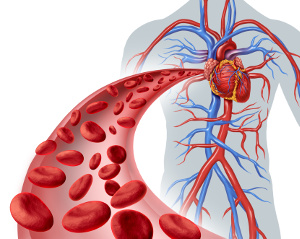 Cholesterol is a vital substance found in all cells and involved in many metabolic processes. Our bodies produce most of cholesterol according to its own needs, and the substance only becomes harmful if it oxidizes and gets embedded in the vessel walls. This has nothing to do with cholesterol levels being high or low. There is evidence that cholesterol-lowering statins inhibit the biosynthesis of Q10, vitamin D, vitamin K2, and several selenium-containing proteins. These compounds are important for energy production and serve as essential antioxidants that protect cholesterol from oxidative stress. Because of their reducing impact, statins often lead to fatigue, muscle weakness, oxidative stress, and other side effects that may eventually increase the risk of atherosclerosis, heart failure, and dementia. This is documented in numerous studies published over recent decades.
Cholesterol is a vital substance found in all cells and involved in many metabolic processes. Our bodies produce most of cholesterol according to its own needs, and the substance only becomes harmful if it oxidizes and gets embedded in the vessel walls. This has nothing to do with cholesterol levels being high or low. There is evidence that cholesterol-lowering statins inhibit the biosynthesis of Q10, vitamin D, vitamin K2, and several selenium-containing proteins. These compounds are important for energy production and serve as essential antioxidants that protect cholesterol from oxidative stress. Because of their reducing impact, statins often lead to fatigue, muscle weakness, oxidative stress, and other side effects that may eventually increase the risk of atherosclerosis, heart failure, and dementia. This is documented in numerous studies published over recent decades.







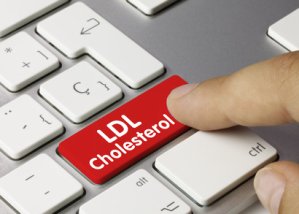 Medical science has claimed for decades that elevated cholesterol levels pose a health threat, especially if you have too much of the so-called “bad” cholesterol – or LDL (Low-Density Lipoprotein). However, a team of international experts is now arguing that this theory is exaggerated. In fact, the experts specifically advise against taking cholesterol-lowering statins. Meanwhile, science is focused on how to improve the safety of statins by combining them with supplements of
Medical science has claimed for decades that elevated cholesterol levels pose a health threat, especially if you have too much of the so-called “bad” cholesterol – or LDL (Low-Density Lipoprotein). However, a team of international experts is now arguing that this theory is exaggerated. In fact, the experts specifically advise against taking cholesterol-lowering statins. Meanwhile, science is focused on how to improve the safety of statins by combining them with supplements of 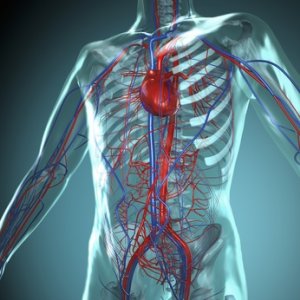 There is absolutely no reason not to consume eggs, meat, butter and other cholesterol-filled foods with a good conscience. American dietary guidelines have finally exonerated cholesterol, which happens to be an essential compound. Many scientists actually claim that atherosclerosis and cardiovascular disease are both a result of inflammation and lack of specific micronutrients. It is important to pay attention to factors that are known to promote inflammation in the body and take the necessary steps by looking after your circulatory system, making healthy lifestyle choices, and possibly even using supplements.
There is absolutely no reason not to consume eggs, meat, butter and other cholesterol-filled foods with a good conscience. American dietary guidelines have finally exonerated cholesterol, which happens to be an essential compound. Many scientists actually claim that atherosclerosis and cardiovascular disease are both a result of inflammation and lack of specific micronutrients. It is important to pay attention to factors that are known to promote inflammation in the body and take the necessary steps by looking after your circulatory system, making healthy lifestyle choices, and possibly even using supplements.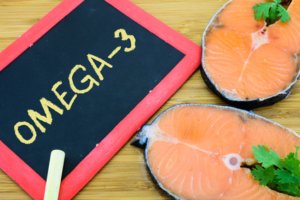 Eat plenty of oily fish from clean oceans or take a fish oil supplement to make sure that you get enough of the essential
Eat plenty of oily fish from clean oceans or take a fish oil supplement to make sure that you get enough of the essential 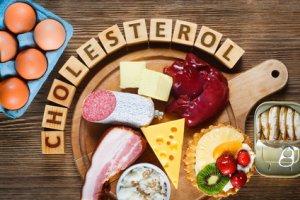 No matter how you twist and turn it, cholesterol is an essential substance, and we humans produce most of it ourselves. What is important is to make sure that the cholesterol we have in our blood does not oxidize, and that is something which
No matter how you twist and turn it, cholesterol is an essential substance, and we humans produce most of it ourselves. What is important is to make sure that the cholesterol we have in our blood does not oxidize, and that is something which 
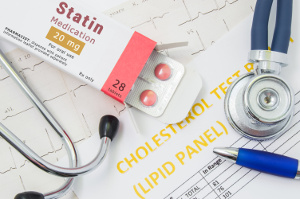 Cholesterol-lowering statins are among some of the most widely sold medical drugs. However, there is growing disagreement about their preventive effect on atherosclerosis and cardiovascular diseases, which are linked to many other factors than cholesterol levels alone. It turns out that statins also block the body’s production of
Cholesterol-lowering statins are among some of the most widely sold medical drugs. However, there is growing disagreement about their preventive effect on atherosclerosis and cardiovascular diseases, which are linked to many other factors than cholesterol levels alone. It turns out that statins also block the body’s production of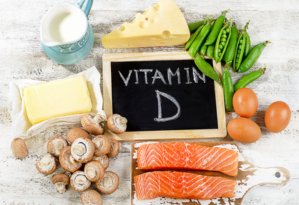 A growing number of people suffer from overweight and type 2 diabetes, both of which are problems that come at a cost both to society and to the individual. The traditional dietary guidelines are not of much use, and many people find themselves in a hopeless battle because they also suffer from insulin resistance with impaired cellular glucose uptake. Countless epidemiological studies have demonstrated that the widespread lack of
A growing number of people suffer from overweight and type 2 diabetes, both of which are problems that come at a cost both to society and to the individual. The traditional dietary guidelines are not of much use, and many people find themselves in a hopeless battle because they also suffer from insulin resistance with impaired cellular glucose uptake. Countless epidemiological studies have demonstrated that the widespread lack of  "After about one week of taking the Q10 supplement I could feel a huge difference," says 23-year old Alan Piccini, who has been suffering from extreme fatigue and muscle aches ever since he was a child.
"After about one week of taking the Q10 supplement I could feel a huge difference," says 23-year old Alan Piccini, who has been suffering from extreme fatigue and muscle aches ever since he was a child. “Taking capsules with co-enzyme Q10 has freed me of the severe side effects of my cholesterol lowering medicine,” Mrs Franken explains.
“Taking capsules with co-enzyme Q10 has freed me of the severe side effects of my cholesterol lowering medicine,” Mrs Franken explains.